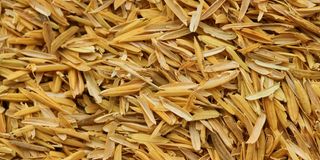Three regions to benefit from Sh2.6 billion rice husk charcoal project

What you need to know:
- The funding for the project has been provided by the government of Japan.
Dodoma. Three rice-producing regions in Tanzania are set to benefit from a new Sh2.63 billion project that aims to convert rice husks into charcoal as part of efforts to promote clean energy and waste recycling.
The regions which include Shinyanga, Mbeya and Morogoro, have been earmarked for the one-year pilot initiative, which is jointly supported by the United Nations Industrial Development Organisation (UNIDO) and the Nelson Mandela African Institution of Science and Technology.
The funding for the project has been provided by the government of Japan.
Speaking during the launch of the project in Dodoma on Monday, the Director of technology development and industry at the Small Industries Development Organisation (SIDO), Mr Kalumuna Benedicto, said the recycling technology originates from Japan and is intended to support small-scale producers in repurposing rice waste for charcoal production.
“The project will help to build local capacity by enabling smallholders to convert rice husks into charcoal, which can be used in households, schools and industrial settings,” he said.
Mr Benedicto noted that the initiative aligns with President Samia Suluhu Hassan’s ongoing push for clean energy adoption, as the charcoal produced will serve as an alternative to firewood and traditional charcoal.
“As we encourage people to produce this form of charcoal, we’re simultaneously reducing dependence on wood fuel, which poses environmental challenges,” he said. “Over the next 12 months, our goal is to sensitise communities on the opportunities this innovation presents.”
UNIDO’s Tanzania country representative, Ms Lorence Ansement, said the project seeks to introduce and scale up Japanese technology that turns waste into commercially viable products.
“Our aim is to turn waste into value. This project demonstrates how rice husks can be used to create a new form of charcoal while also enhancing trade and collaboration between Japan and Tanzania,” she said.
He added that the project will collaborate with rice millers who currently dispose of rice husks without using them productively.
“We want to establish a business model around this waste, with a particular focus on involving women and young people in creating new enterprises,” said Ms Ansement.
UNIDO’s industrial development expert and project manager, Ms Nahomi Nishio, confirmed the project’s budget stands at approximately Sh2.63 billion (equivalent to $1 million).
The head of economic and development cooperation at the Japanese Embassy in Tanzania, Mr Jin Hashimoto, expressed hope that the project would succeed in full and further strengthen the friendship between Japan and Tanzania.
According to the 2022 Population and Housing Census, 56 percent of households in Tanzania rely on firewood for cooking, while 26 percent use charcoal. Only 6.9 percent of Tanzanian households used clean cooking energy by 2021—up from just 1.5 percent in 2010—according to World Bank data.
Tanzania aims to ensure that at least 80 percent of its population has access to clean cooking energy by 2034.





